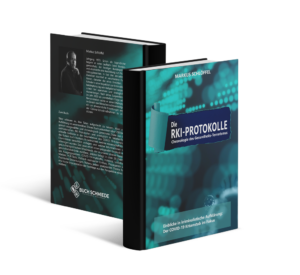Customers decide the future of the banking industry: transfers, cash transactions and investments all without cash? Just one click and with an app, simple and straightforward? What do consumers hope for from fintech companies?
The classic banking business such as savings, financing, account management and processes of all tasks is undergoing a transformation. Convenience, speed, service orientation, transparency in payment transactions are just a few points that consumers expect thanks to digitalization and technology. „The digitization of the entire financial services sector can be understood under the term Fintech and the advantages are obvious: flexibility through digitization, mobility and innovation in the market. Discussed disadvantages concern data protection, cybercrime and the seriousness of providers is more difficult for consumers to verify than, for example, with the financial institution of trust with personal customer service,“ explain Mirko Scheffler and Achim Pfeffer, board members of Fintech Payment Solutions AG from Munich. Fintech Payment Solutions AG develops, programs payment systems and invests in companies.
Young consumers are not afraid of fintechs as partners for their money
„Pay cashless if possible“ – this notice can now be found at just about every checkout. As the Corona virus continues to spread, more and more emphasis is being placed on contactless payment options. Mirko Scheffler comments: „The clear shift towards cashless payment was already apparent beforehand, however, and EC and credit cards as well as the smartphone are well on the way to becoming the wallet of the future. Currently, there is a unique opportunity to benefit from the innovative changes in the financial markets and their distribution channels. New, technology-driven business models, ideas and services are entering into serious competition – building on the massive technological progress of recent years – with existing market players.“
In banking for Generations Z and Alpha, FinTechs and „neobanks“ respectively are in a tough race. Generations Z and Alpha are particularly attractive for the so-called neobanks (exclusively online, management via smartphone), just as their parents are part of the growth trend. According to a comdirect FinTech study from 2020, there are more than 900 FinTech startups in Germany (PropTech 203, Finance 189, InsurTech 115) with an investment of more than 6 billion euros and since the end of 2018, the German FinTech sector has grown by 19 percent. „The number of online users in daily banking is increasing. In 2014, the number was 50 percent, in 2020 it will be 65 percent, and online banking among 25- to 44-year-olds will be as high as 83 percent. Switching from a trusted bank to a digital company is being considered by nearly one in three consumers. Particularly in the pandemic, consumers have noticed that doing banking transactions online is convenient and, in addition, many branch closures have made it necessary for consumers to switch online banking,“ explains Mirko Scheffler.
What are the pros and cons of introducing a cashless payment system and how far will cashless payment develop in Germany in the future?
At first glance, the movement from cash payments to contactless payment brings clear advantages. Proponents primarily argue that crime, such as in the area of tax evasion or black money, will be significantly curbed. In addition, the loss of the cashless means of payment is limited to 50 euros in the most frequent cases due to personal liability as a result of the NFC payment.
Further, the costs incurred for the provision of bills and coins would be reduced and, of course, would contribute to faster and more convenient payment transactions. Nevertheless, consumer advocates have been calling for more consumer protection in the financial technology sector for years. From the point of view of consumer advocates, there is a danger of dubious providers in the digital payment system. Security, user-friendliness and transparency are critically discussed, because the question on the part of the Verbraucherschützer is whether sufficient buyer protection exists with on-line payment services? „The consumer center points out quite clearly that the lowest risk is in the payment after receipt of an invoice, as well as the issuance of a direct debit authorization. Internet payment systems are subject to financial supervision BaFin since 13.01.2018, in addition, since 13.08.2018, no extra costs for card payments and payment services may be charged to the buyer, this payment services directive applies throughout Europe. One danger is the loss of data. In the case of mobile payment, there is a special feature. Firstly, mobile payment is not an Internet payment system; instead, mobile payment is mainly used for purchases in retail stores or for paying in restaurants, for example. Secondly, a smartphone or tablet is required and a successful transaction must be carried out via the mobile device,“ Mirko Scheffler points out.
Consumers see cashless payment systems as their freedom

Many consumers everywhere are now demanding the option of a cashless payment system and the freedom to choose. Published statistics from POSpulse make it clear that 42 percent of the 1046 respondents preferred to pay by card in 2020 and around 31 percent preferred contactless payment. „This means that there is no need to philosophize about the abolition of cash, but facts and figures confirm that the financial system is in a state of flux. The FinTech industry is completing the digital financial system with mobile payment. This is precisely where Fintech Payment Solutions AG comes in. By taking the helm of wee’s payment solution as a payment platform, Fintech Payment Solutions AG succeeds in participating in the market with a technically proven system,“ explains Achim Pfeffer, CEO of Munich-based FPS AG. After taking over the technical capabilities of the wee payment platform, Fintech Payment Solutions AG kicked off the second half of 2021 in Dresden on July 10, 2021 as part of a larger event. Also present was Frank Pawlak, whose company in Dresden introduces Fintech Payment Solutions AG to wee. „Everything with one app – that’s what wee promises as a payment platform. Equipped with QR code technology, customers use one wee card or wee app instead of many different loyalty cards. With the wee-Card and the wee-App, customers can save money on every purchase, pay contactless and free of charge and, as a local retailer, participate cost-effectively in the digital marketplace with customer loyalty through digital cashback,“ summarizes Frank Pawlack, Managing Director of mdv Dresden UG, who is convinced of mobile payment with the wee solution on the market.
The integrated wee cashback system is a special attraction for customers. „Yes, but also for merchants. Customer loyalty with digital cashback that is directly integrated into mobile payment, everything digitally and clearly in an app. For customers, this means getting real money back with every purchase, and merchants retain their customers. The advantage of wee: the cashback collected from customers can only be used for payment in local retail stores, not in online stores,“ explains CEO Mirko Scheffler. The platform has been under development since 2015 and includes collaborations with an eMoney licensing institute, a KYC interface provider and a terminal manufacturer and operator. The weePay is based on QR code technology as a self-contained system and all transactions within this system are free of charge for customers.
Future payment options
The demand for contactless and convenient payment options is high, combined with flexibility and security. Following the establishment of apps such as PayPal, major corporations such as Google and Apple have decided to offer payment formats via smartphones. The digital association Bitkom is also demanding on the part of the German government that the previously voluntary offer of a cashless payment system become an obligation for retailers in the future. Since 2018, mobile payment solutions such as GooglePay and ApplePay have become increasingly integrated into everyday life. This enables customers to pay directly through a virtual credit card on their smartphone. Depending on the model, authentication is straightforward via fingerprint, facial recognition or pin entry. However, the disadvantage here is that not all banks are compatible with this payment format.
V.i.S.d.P.:
Nayra Rüdiger-Wagner
Student & Blogger
About the author:
Nayra Rüdinger-Wagner is currently studying Media and Communication Management at SRH Fernhochschule. In addition to her long-standing passion for the film industry as well as traveling and getting to know other countries and cultures, she is now focusing specifically on her interest in finance. She appreciates the free and location-independent nature of her studies, which also allows her to take advantage of every new opportunity to further her education in her areas of interest.
Contact:
Fintech Payment Solutions AG
Leopoldstrasse 244
80807 Munich
Germany
Phone: +49 (0) 89 21527758
E-mail: info@fps-ag.com
Web: www.fps-ag.com
Company Description:
Fintech Payment Solutions AG is an investor for investments in the areas of financial payment technologies. The focus of Fintech Payment Solutions AG develops and programs payment systems, participates in companies that develop and operate payment systems. The company has the experience and the required know-how in the areas of IT and software development, marketing and sales as well as M&A and investment management. Fintech Payment Solutions AG aims at active and long-term support of investments.
PRESSEKONTAKT
Fintech Payment Solutions AG
Achim Pfeffer
Leopoldstraße 244
80807 München
Website: www.fps-ag.com
E-Mail : info@fps-ag.com
Telefon: +49 (0) 89 21527758




